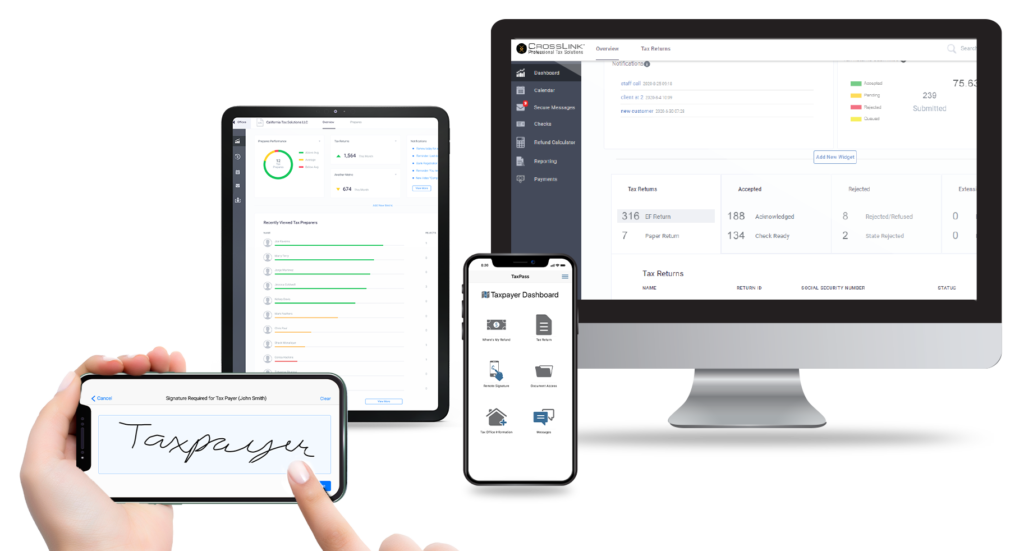What is Income Tax
Generally, taxpayers must file a state income tax return annually to determine their tax obligations. There are some states with no income tax. Income tax is a tax imposed by a government on income generated by individuals and businesses. This tax is within the government’s authority to generate revenue in order to pay for public services like schools, police and fire departments, programs like Social Security, and infrastructure such as roads and highways.
There are currently nine states in the U.S. that do not have a state income tax:
- Alaska
- Florida
- Nevada
- New Hampshire
- South Dakota
- Tennessee
- Texas
- Washington
- Wyoming

How do States with No Income Tax Make Money?
Typically, states without an income tax will ask their taxpayers or visitors to pay tax in other areas, including but not limited to:
- sales tax
- property tax
- fuel tax
These taxes can add up over time, generating more revenue for states than a state income tax alone. In Florida, for example, residents must pay sales taxes, higher property taxes, and corporate income taxes.

What States Have No Income Tax?
In the United States, there are currently nine states that do not have a state income tax. These states are:
Alaska
The largest, and considered one of the most tax-friendly states in the United States, Alaska repealed its personal income tax in 1980. A couple of downsides of living there are the remote location and steep cost of living relative to median family incomes.
Florida
Florida, a popular vacation retreat, generates most of its revenue from state and local sales tax. Florida also has a very competitive housing market.
Nevada
Nevada generates most of its income from sales and excise tax. Generally, Nevada’s state and local sales tax is on the high side.
New Hampshire
New Hampshire still taxes dividends and interest on investment income until 2027. The cost of living and property taxes in this state are among the highest in the country as well.
South Dakota
South Dakota is considered one of the most affordable states. South Dakota depends on the state and excise taxes to generate revenue.
Tennessee
Tennessee phased out its tax on interest and dividends on investment income in 2021. This state generally relies on an above-average sales tax. The overall tax burden for TN residents is the second-lowest in the country, according to U.S. News & World Report.
Texas
Texas has one of the lowest state and local tax burdens in the nation. The Lone Star State generates a good portion of revenue from one of the highest property tax rates in the country.
Washington
Washington ranks towards the bottom when it comes to affordability, but it does have relatively average sales and local tax. Along with no state income tax, the state of Washington also doesn’t impose a corporate income tax.
Wyoming
The state’s overall sales and local tax burden rank second in the nation (tied with Tennessee). The nation’s least populated state has an above-average cost of living.
Information provided above on state averages and rankings provided by U.S. News & World Report.
Is Living in a State with No Income Tax Better?
Nobody likes paying taxes, but that does not mean packing the family up and moving to Florida is the best option for you. Other factors such as healthcare, cost of living, and job opportunities should be taken into consideration as well.

Pros and Cons of Living in a State with No Income Tax
Pro: Pay only federal income tax
If you find yourself in the top federal tax bracket of 37% (Tax Year 2022), you may already think that is a large enough pill to swallow. Adding state income tax on top of that may be enough for some high earners to think about relocating to a state income tax-friendly state.
Con: Other taxes may be higher
Generally, states are not overly wealthy since they don’t have a state income tax. These states traditionally will have different revenue plans to raise the revenue needed to run the state. This may require other sources to be higher compared to states with state income tax. Depending on your lifestyle, you may be able to get away with avoiding some of these other taxes, but it will depend on the state in question.
For more information on what other taxes you may be paying in these states, review the following:
- Alaska Department of Revenue
- Florida Department of Revenue
- Nevada Department of Revenue
- New Hampshire Department of Revenue
- South Dakota Department of Revenue
- Tennessee Department of Revenue
- Texas Comptroller
- Washington Department of Revenue
- Wyoming Department of Revenue
Software
Today, the amount of income tax you must pay is easily calculated in software used when preparing your annual individual tax return. We recommend using the services of a professional tax preparer, Enrolled Agent (EA), or Certified Public Accountant (CPA) to prepare your tax return. Using a tax professional will greatly increase the likelihood that your tax return is prepared accurately and that you are taking advantage of all the tax credits and deductions available for taxpayers.
CrossLink Tax Software

CrossLink is the industry’s leading professional tax software solution for high-volume tax businesses. Built based on the needs of busy tax offices and mobile tax preparers that specialize in providing their taxpayer clients with fast and accurate tax returns, CrossLink has been a trusted software solution since 1989. CrossLink’s in-depth tax calculations, advanced technological features, and paperless solutions allow you to prepare the most complicated tax returns with confidence and ease while providing your customers an unparalleled experience.
